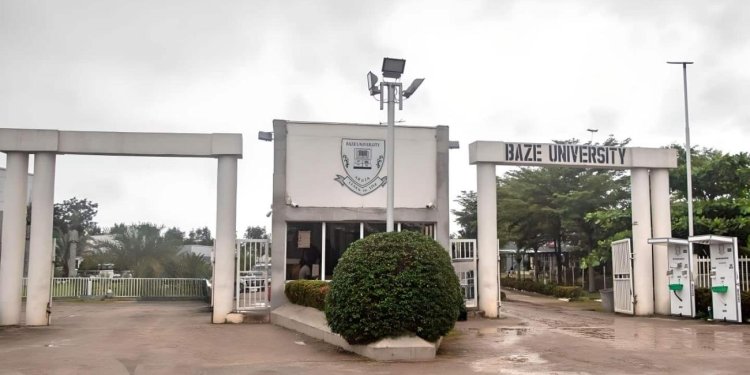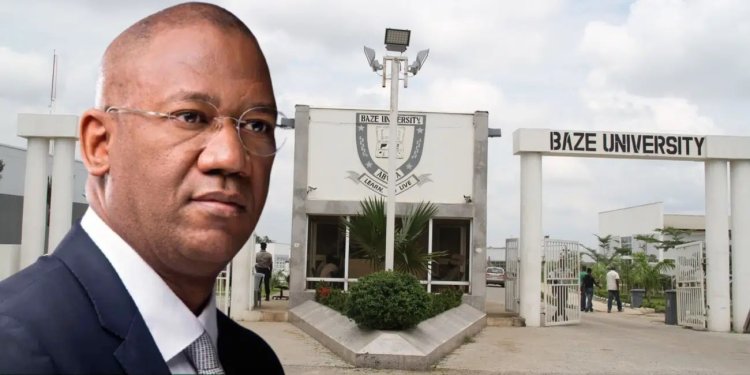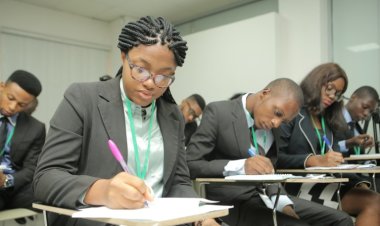Baze University Students Decry Poor Living Conditions Amid Controversy Over Law School Ban
Baze University students protest poor hostel conditions amid controversy over law school admission violations

Students of Baze University in the Federal Capital Territory, Abuja, have expressed their dissatisfaction with the poor state of their residence hall. Despite paying over N1 million per session for a bed space, feeding, and other hostel charges, the students are living in conditions they describe as comparable to a N20,000 hostel.
See more: BAZE University Law Graduates Appeal for Help Over Five Year Admission Ban
The students made their grievances known through a series of videos, showing dirty toilets, bathrooms, and other facilities in the hostels. The videos also revealed non-functional CCTV cameras, which the students claim are merely for decoration. In some instances, students have had to resort to bathing in the courtyard and brushing their teeth with sachet water due to the lack of clean water.
The university, founded by Yusuf Datti Baba-Ahmed, the vice-presidential candidate of the Labour Party in the 2023 general election, is currently embroiled in controversy following a five-year ban imposed by the Nigerian Law School. The ban was a result of Baze University consistently violating its admission quota of 50 students per session, as approved by the Council of Legal Education (CLE) in November. The university’s law faculty currently has a backlog of over 347 law students waiting to be admitted into the law school.
For you: ATBU Extends Closure After Tragic Incident, Resumes in January 2024
Efforts to get a response from the school on these issues were unsuccessful. Two of the three contact phone numbers obtained from the school’s official website were not reachable, and the only one that was answered was by an official who stated he was not in the best position to speak on the matter.

 Chukwuebuka Aniakor
Chukwuebuka Aniakor 




